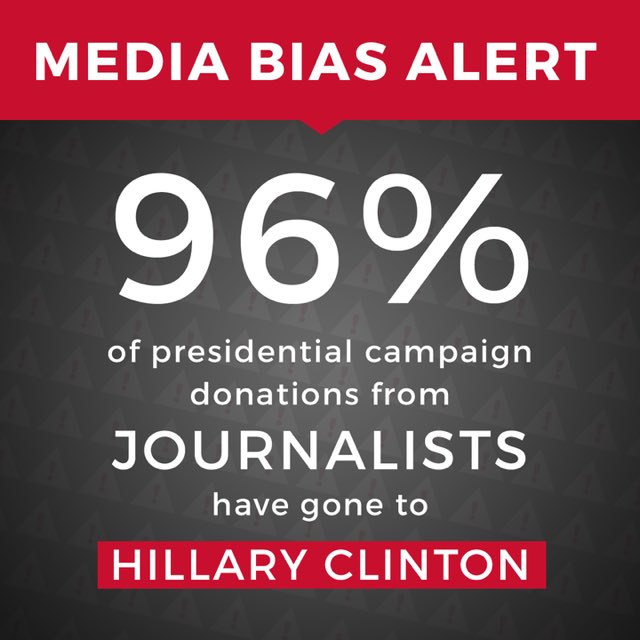Donations often banned
Almost any U.S. citizen or foreign national with a U.S. green card may,by law, give money to a federal political candidate.
But major news organizations often restrict, if not prohibit, their journalists (and occasionally non-journalist employees) from making political campaign contributions.
The news organizations’ overriding concern: Such contributions will compromise journalists’ impartiality or seed the perception that journalists are biased toward certain politicians or political parties.
The New York Times’ ethics handbookdeclares that its staffers may not give money to, or raise money for, political candidates or election causes. “Any political giving by aTimes staff member would carry a great risk of feeding a false impression that the paper is taking sides,” it reads.
The Associated Press is even more blunt with its journalists, stating that “under no circumstances should they donate money to political organizations or political campaigns.”
CNN spokeswoman Bridget Leininger said the cable network “does not allow editorial staff to contribute to candidates or political parties.”
A review of several dozen newsroom ethics policies indicates many other notable news outlets have similar no-political-donations mandates, includingThe Dallas Morning News, Houston Chronicle, Los Angeles Times, National Public Radio, ProPublica, San Antonio Express-News, The Seattle Times and Tampa Bay Times. (The Center for Public Integrity’s staff handbook states that all employees are “prohibited from engaging in political advocacy or donating to political candidates at any level of government.”)
And while some journalists do give politicians money, the vast majority do not.
“Not having that affiliation helps me feel more independent,” said Margaret Sullivan, The Washington Post’s media columnist, and a former New York Timespublic editor and Buffalo News editor and vice president. “I wouldn't do it, and when I was supervising a newsroom, we had rules against it. It's a good discipline, I think.”
Although journalists may have a right to give money to political candidates, the act of doing so “easily could be perceived as a conflict of interest,” saidPaul Fletcher, editor-in-chief of Virginia Lawyers Weekly, who recently served as president of the Society of Professional Journalists.
So concerned about bias was former Washington Post Executive Editor Leonard Downie Jr. that he didn’t even vote.
No restrictions
Strict political contribution policies are not, however, universal among news organizations.
What’s patently prohibited at one news organization may be perfectly permissible at another.
Some outlets also differentiate among newsroom employees: A reporter covering a governmental agency, for example, might be punished for cutting checks to a U.S. Senate or presidential candidate. But the resident arts correspondent or star sports writer? Play ball.
Take Orange County Register restaurant critic Brad Johnson in California, who this year made dozens of small-dollar contributions to Clinton’s campaign that total more than $750.
Digital First Media’s Southern California News Group, of which The Orange County Register is a part, expressly prohibits news reporters from engaging in campaign activities “related to candidates, campaigns or issues which they may cover,” news group Executive Editor Frank Pine said. But while Johnson fits the broad definition of “journalist,” Pine doesn’t consider Johnson a news reporter — and therefore, he’s free to give the Clinton campaign money.
Johnson concurs: “I don't cover politics. I don't do investigative reporting. I'm just interested in finding the best pad thai and sharing what I find with our readers.”

 emailMichael Beckel
emailMichael Beckel

 email[/h] [h=4]4 hours, 9 minutes ago Updated: 1 hour, 34 minutes ago[/h]
email[/h] [h=4]4 hours, 9 minutes ago Updated: 1 hour, 34 minutes ago[/h]






